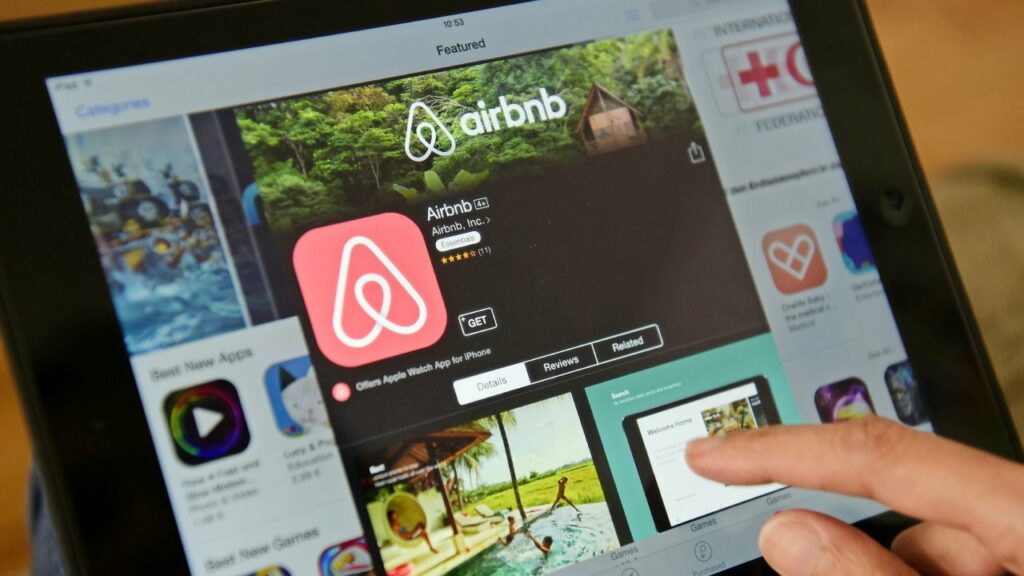Several cities in Flanders are working together to tackle abuse of rental platforms such as Airbnb and Booking, as they fear a recent increase in migrant workers, sex workers and asylum seekers being exploited in tourist rooms.
The cities of Antwerp and Genk (in the Limburg province) are looking into how to tackle human trafficking in private homes and tourist lodgings, specifically concerning sex workers, asylum seekers and migrant workers.
"It is a new phenomenon, and we first need to understand it. We want to protect these vulnerable groups from exploitation," Genk mayor Wim Dries (CD&V) said on Flemish radio. To investigate this, Genk and Antwerp are collaborating with the Dutch cities of Tilburg and Amsterdam in the 'Confine 2.0' project.
"Antwerp has picked up signals that rental platforms are being abused and asked us to cooperate, because we already set up a similar 'Confine' project together six years ago," Dries said.
Manifest malpractices
That investigation, in 2018, targeted the exploitation of staff in Thai massage parlours in Antwerp and in hand carwashes in Genk. "Now we first want to see how big the problem is in our cities. In the coming months, we are going to check whether the rental websites are being abused for human trafficking."
To investigate the abuse of lodgings offered over the internet, the cities are cooperating with the police. "With special software, we scan the internet and get in touch with those people," Antwerp mayor Bart De Wever (N-VA) told Belga News Agency.
"Then we can check who they are, whether they are in a precarious situation and whether they do have a passport. We remind them of their rights and refer them to sex workers' counsellors. And if there are manifest malpractices, action can also be taken."

Credit: Belga
Just last weekend, De Wever closed down for one month a premise on Boomgaardstraat in Berchem because three vulnerable sex workers were working there: for a room with a shared bathroom, they were paying an average of €500 a week. Last year, eight Airbnb's were also shut administratively in the city of Antwerp because they were not being used for tourists.
"We want to find out whether there is a form of exploitation, for example whether the landlords renting to these vulnerable target groups generate abnormal profits from these rentals," Annemie De Boye of the Arrondissement Information and Expertise Centre (Ariec) told VRT. The Ariec is an alliance of government departments in the fight against organised crime.
While there is nothing illegal about renting rooms to sex workers, asylum seekers or migrant workers, De Boye stressed that it is best to avoid mixing tourism with this form of housing.
Related News
- Airbnbs in Brussels directly linked to higher neighbourhood rents
- The blight of 'illegal' Airbnbs: Brussels takes steps to protect affordable housing
- Entire building with illegal Airbnb flats sealed in Brussels city centre
The most well-known rental platforms – such as Airbnb and Booking – are also the ones most used for possible exploitation of people, she said. "But we know that temporary employment agencies, often working in the Netherlands and Belgium at the same time, also use this. We now want to enter into dialogue with those hiring platforms to tackle certain forms of human trafficking."
Police in other municipalities are also noticing abusive rental platforms. In the Hasselt police zone (Limburg), there have even been a dozen reports from local residents or other witnesses for a year. "We come across situations such as prostitutes working off the books, but sometimes we also see that their living conditions are not okay. There is also sometimes pimping, which has to be punished," said Dorien Baens of the local police.
In Antwerp, De Wever hopes that the results of 'Confine 2.0' will be known by the end of this year. "I hope that by then we will have a kind of manual with measures to take and policies to put in place to act in time against abuse of online lodging."

